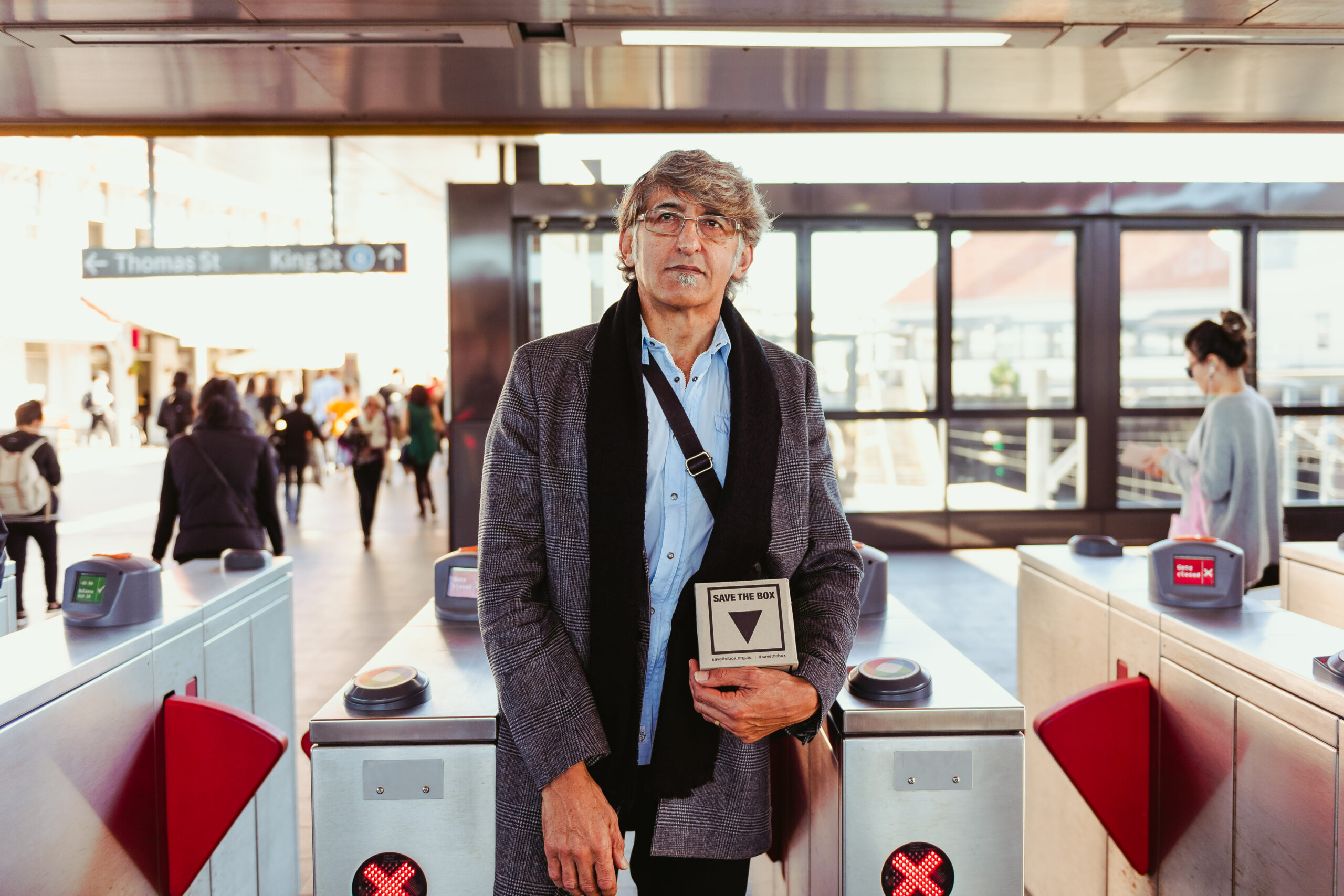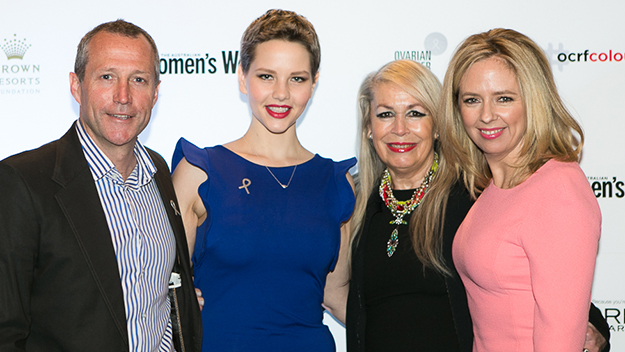Caitlin, now 40, talks about life after her devastating diagnosis:
Nothing and I mean nothing can prepare you for being told you have cancer. Finding out I have ovarian cancer was the most surreal/traumatic moment of my life – and something that will be permanently etched in my mind.
For months, I’d been fatigued and had been suffering painful headaches so I’d gone to my doctor to get it checked out.
As I’m sure lots of women probably would, I’d put this down to tangible things like my menstrual cycle or being particularly busy at work. We’d also had a traumatic death in the family so I thought this was my body’s way of reacting to stress.
An initial MRI ruled out a brain tumour but I began to get abdominal pain, especially during intercourse, and I couldn’t face chocolate, meat, or wine – aka all of the good things!
So my doctor sent me for a CT scan and ultrasound. It was these results that were to change my life irrevocably.

Caitlin with Lilith and Willow before her diagnosis.
“Please just tell me,” I begged my doctor, who I know very well, on the phone. I was still at work when she told me to come into the surgery immediately.
The only way I can describe the diagnosis is like watching a really awful movie.
“You have ovarian cancer,” she said softly. I felt like I’d just been handed a death sentence.
Immediately my thoughts sprang to my two daughters, Lilith, 4, and Willow, 2, and my amazing husband Kevin.
What about my little girls? How would we cope? How would Kevin cope? Was I going to die?
Scans revealed that I not only had large tumours on each ovary, but also tumours on my diaphragm, lesions on my liver, and fluid in my abdomen which was potentially affecting my spleen, stomach, pancreas and my bowel.
Being a scientist myself, I wanted to find out everything about my prognosis. I didn’t know much about gynaecological cancers before my diagnosis but I was absolutely gobsmacked this was happening to me. I didn’t have a history of cancer in my family and I don’t have the BRCA mutation either.
I was initially diagnosed with stage 3 ovarian cancer.
Aged 39 with two young daughters. The severity was only just starting to sink in.
Living with ovarian cancer
I started weekly chemotherapy two weeks after my diagnosis and I responded ok. But chemo was as horrible as you’d expect. There were good days and days I felt like I couldn’t even move I was so exhausted.
We told the kids straight away what was going on – the expert advice we received was to use the word ‘cancer’ and be honest with them. Lilith even told me she was going to be a doctor when she grows up so she can “fix” me – you’ve got to admire her ambition!
They know not to touch Mummy’s tummy and they were also there when we shaved my head. I used to have long blonde hair so it definitely took some adjusting.
I can’t tell you how confronting it is to be faced with one’s own mortality.

During treatment.
A rollercoaster of emotions
What’s been incredibly hard is that the goalposts keep changing. At first you think “I’ll just get through chemo”, then it’s “let’s get through the operations” and I was even told my cancer could be inoperable at one stage. I had debulking surgery to get rid of the tumours which involved a radical hysterectomy, my omentum and appendix removed and surgery on my spleen and liver. This was when I was told a tumour in my diaphragm was growing through the muscle into my chest cavity, making me now stage 4. I was also told I had clear cell ovarian cancer, the rarer kind with a much poorer prognosis.
It was like receiving the initial devastating diagnosis all over again.
Most unbearable of all is thinking I might not see my two beautiful girls grow up.
But you keep going. Watching them playing gives me the strength, along with Kevin, who really has been my rock. I love him more with each passing day.

Caitlin and Kevin.

Caitlin with Lilith and Willow.
Now, I need to remain positive, which can be rather difficult when stage 4 ovarian cancer has an estimated 90 percent chance of recurrence. I’m on a maintenance drug called Avastin that may increase my disease-free survival.

Keeping positive!
Educating women about ovarian cancer – the silent killer
Ovarian cancer is known as the ‘silent killer’ for a reason. You see, many women’s symptoms don’t present themselves until it’s too late.
Listen to your body is my overall advice.
If something doesn’t feel right then go to your doctor. Trust your instinct and pursue why it is you’re getting extreme symptoms – in my case, the headaches.
Also, women often think a pap smear will pick up all gynaecological cancers, but this isn’t the case.
Sadly, survival rates for ovarian cancer have improved very little in the last 20 years and there have been no huge scientific breakthroughs.
Through better education and fundraising to finally get those much-needed breakthroughs; hopefully we can at least start to eradicate this devastating disease.
Caitlin has pledged to advocate and raise money for the Australia New Zealand Gynaecological Oncology Group’s (ANZGOG) Save The Box campaign. Save The Box is a campaign dedicated to raising awareness and fundraising for gynaecological cancer research. Find out more about how easily you can join their money box challenge by visiting www.savethebox.com.au now.

Caitlin and her girls supporting Save The Box.

